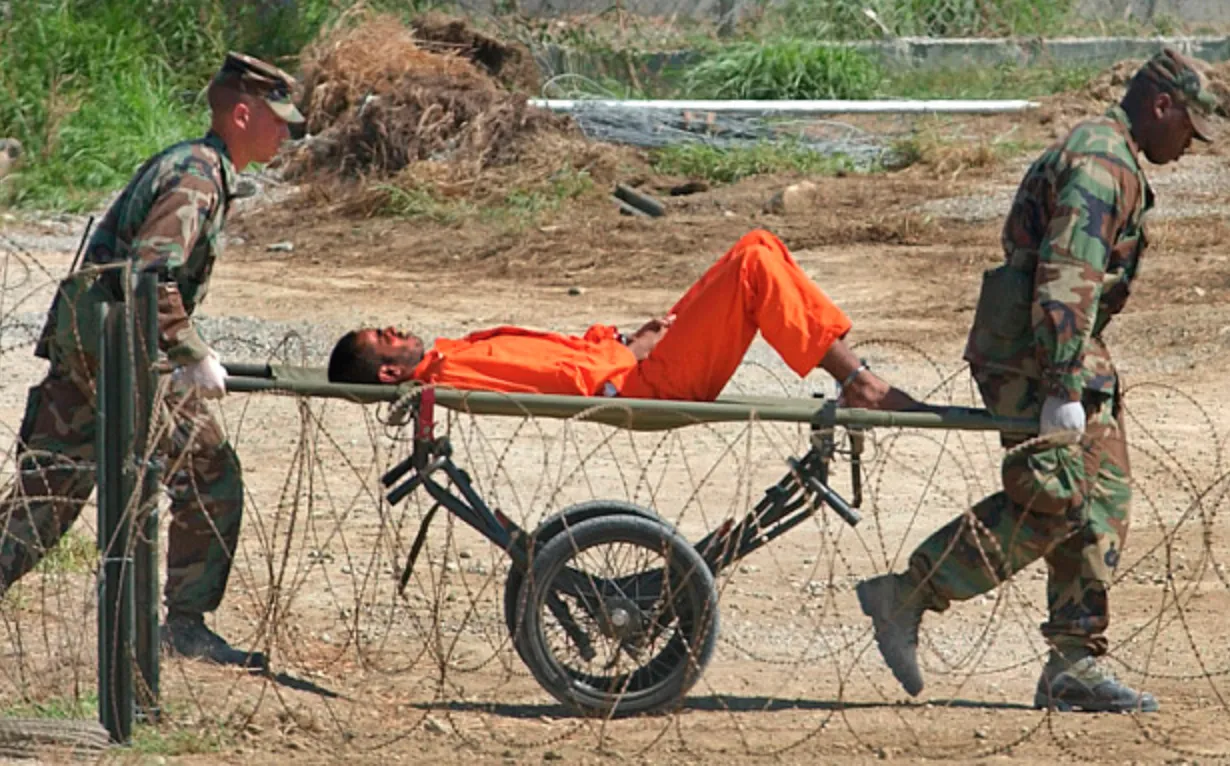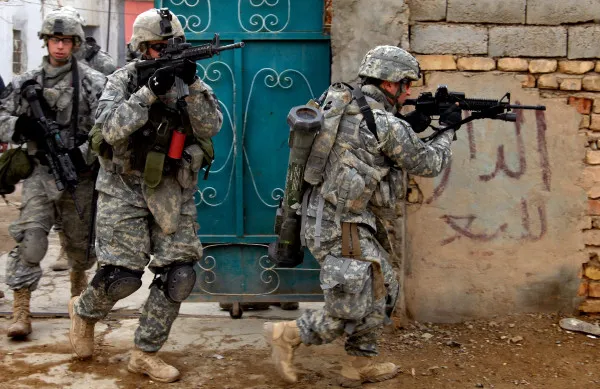Table of Contents
I’m fairly comfortable with the late administration’s policies with respect to prisoners in the War on Terror. Nevertheless, I must admit I was a bit heartened to see a friend of mine all over the local TV news confronting Dr. Rice over the Bush administration’s record on torture. One must respect those willing to speak truth to power. Of course, the “truth” in this case is of dubious veracity, and the “power” is rather dramatically out of power, but it’s the thought that counts, I guess.
I have no intention of providing a comprehensive post on the torture issue here; Dan Slate does that admirably below. Rather, I want to make two observations relating to the degree of clarity that exists around detainee policy.
First, the Bush administration was always a little vague and awkward on the subject of the treatment of enemy combatants. (Indeed, Dr. Rice’s remarks to my friend exhibited these characteristics to some extent.) Doubtless some of this was attributable to the generally lackluster communications efforts of the Bush team. But I wonder whether some of the administration’s awkward evasiveness on the issue was deliberate. That is, I think there is a certain advantage accruing to a torture-averse government from extant rumors of ill treatment–even illegal treatment–of enemy combatants.
If indeed the United States were committed to prosecuting the War on Terror within the law and with due recognition of human rights, it would be all the more important not to clarify the limits to which the government would go in its detention and interrogation practices. The idea would be to make potential enemy combatants or terrorists excessively fear their fate in American custody. This might deter hostile acts in the first place. More importantly, though, such an obfuscatory policy might get detainees to talk sooner rather than later; after all, why not cooperate before interrogators resort to illegal and/or immoral methods? If the US were unwilling (or at least extremely reluctant) to actually employ such methods, it would be *essential *to get adversaries to cooperate before that unwillingness were to manifest itself. Put differently, detainees must be scared into divulging information quickly, lest they come to realize the truth–namely, that our dog does not actually bark.
Second, on a related note, all of this earnest inquiry (on and off campus) into what, precisely, was done or not done has a certain counterproductive aspect. The more potential opponents learn about our practices, the more of an advantage they gain. Knowledge is power. If it is known with certainty that the US employs a particular practice to elicit information, enemies can better prepare themselves to resist that practice. What’s more, if it is known with certainty that we categorically refuse to employ some particular tactic, our adversaries will feel that they have less to fear from resisting us, both on the battlefield and in the interrogation cell.
But this reality runs up against a basic democratic sensibility that all Americans share–the desire for accountability. Indeed, detainee treatment is an area in particular need of accountability, in light of the dramatic tension that exists between the government’s obligation to protect citizens and its obligation to observe the universal, humanistic principles that underlie our republic.
What to do, then? How can we preserve accountability while sufficiently obscuring the rules by which we operate vis a vis treatment of enemy prisoners? It is useful here to designate two forms of accountability, which we can call “democratic accountability” and “republican accountability.” (The lowercase is deliberate.) The former is essentially transparency–make everything public, so that everyone can know who did what to whom, and when. This will keep the government honest and diligent. The latter is a reliance on the judgment of public officials, in this case the officials of the Executive. These figures are given substantial latitude to act outside the spotlight in accordance with their assessment of the situation; the accountability comes in the form of elections, in which the character and judgment of a presidential ticket is vetted by the voters.
All affairs of state must be subject to either democratic or republican accountability. Most are subject to both. But for the reasons I mention above I think the republican alternative is by far the better way to introduce public influence over detainee policy. It is better to keep some things quiet than to incur the costs of open disclosure.
Were republican accountability to fail, though, we would have no alternative but to introduce democratic accountability–to demand extensive disclosure of matters pertaining to treatment of prisoners in the ongoing war, so that we the public could openly decide what lines to draw and where to draw them.
In this light, the actions of the activist Left with respect to the Bush administration’s torture record make a certain sense. They believe that republican accountability failed during the Bush years. That is, they believed that the leaders of the executive branch–Bush, Cheney, Rice, etc.–were totally lacking in judgment, decency, and character. If one accepts this as a premise, then the public has an obligation to bring detainee policy entirely into the open in order to ensure that it is consistent with America’s values as well as her security requirements. My old draw-mate who challenged Rice in the aforementioned video was simply acting on this impulse, and I admire him for that.
But the premise that Bush and his cabinet were unscrupulous hacks remains ridiculous. Frankly, I am amazed at the success of the politics of personal destruction over the last eight years. A moderate and decent President, a sober and experienced Vice President, and an accomplished and serious Secretary of State were transmogrified into comic book villains. I do not want to defend the administration’s politics here. My point is simply that the previous administration was deserving of some amount of trust and discretion, which the Left continues to deny them to this day. For what it’s worth, I have the same baseline respect for the Obama administration, despite diverging pretty substantially from its politics.
The bottom line here is that republican accountability did not collapse in the Bush years, despite the sanctimonious wailing of the far Left. If those folks had been less susceptible to what Charles Krauthammer calls “Bush Derangement Syndrome,” we might have been spared their understandable but overzealous push for democratic accountability in the detainee policy sphere. Unfortunately, now it’s open season on what ought to be a fairly covert realm, and we may well pay for it.
It’s a pity.







